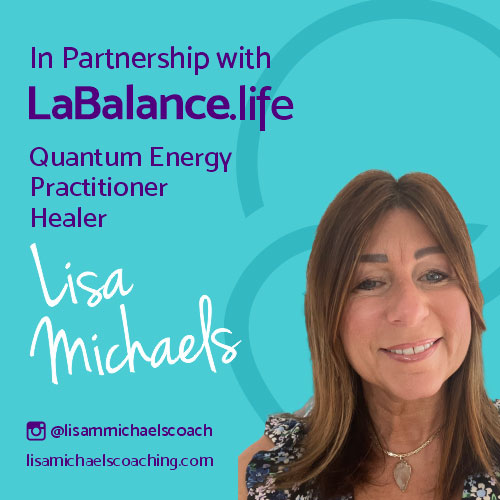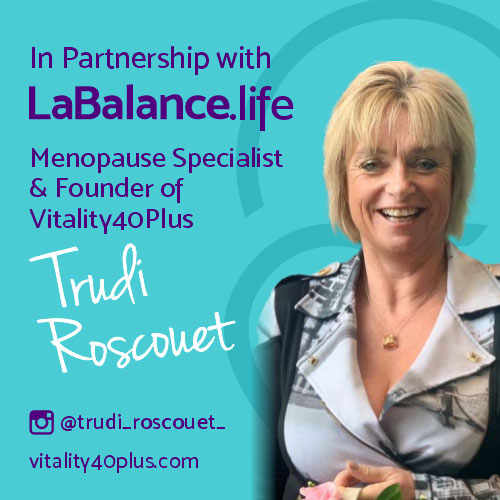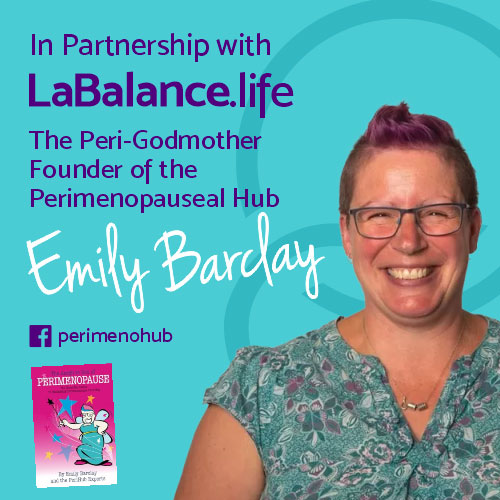Let’s talk about menopause. As the body changes, many women notice physical and psychological symptoms that can affect their everyday life. Of course, although the effects of aging are natural and should not be feared, the menopausal transition can feel overwhelming and distressing.
Whether you’re dealing with anxiety, insomnia, hot flushes, headaches or cramps, menopause can have a real impact on womens’ quality of life. It is, therefore, only natural that you should seek some form of treatment or relief.
The first port of call for women experience perimenopause or menopause is often a trip to the doctor’s; a healthcare professional can offer advice and asuggest a plan for treatment moving forward. That said, it is important to expolore every option in order to find the one that best suits your needs.
If hormone therapy and chemicals aren’t your cup of tea, you may be wondering if there are other treatments available? Fortunately, the answer is yes. Read on to discover everything you need to know about menopause treatnments.
The Science Behind Menopause
In order to accept the changes that our bodies go through during menopause, it’s helpful to understand the science and chemicals at play. Menopause is a natural part of the ageing process and should not be feared; demystifying the transition can often reduce the anxiety that accompanies the experience.
As you probably know, menopause typically occurs between the ages of 45 and 55, though it may begin earlier for some women. Some individuals also experience perimenopause, during which the symptoms of menopause begin before their periods have stopped.
The menopausal transition begins with the loss of ovarian follicular function, leading to lower oestrogen levels in the blood. In other words, as the ovaries cease to produce eggs, hormone levels drop and certain changes begin to occur.
For many women, the symptoms of menopause can be alarming or upsetting. That said, it is important to recognise them as a natural part of the transition. Below, we’ve outlined a number of symptoms commonly associated with menopause, although they may differ from one individual to the next.
Common menopausal symptoms, as outlined by the NHS:
- ‘brain fog’ and memory issues
- difficulty sleeping
- fatigue
- hot flushes
- joint aches
- loss of sex drive (libido)
- low mood or anxiety
- migraine
- night sweats
- vaginal dryness or pain
As mentioned earlier, the symptoms of menopause may disrupt your everyday life; understanding the causes behind these changes is the first step on the path the re-gaining control over your body and independence within your life. With that in mind, let’s explore the treatments available.
Hormone-Based Treatments
We thought we’d begin by discussing hormone-based treatments. Before we begin, however, it is worth noting that, although these are the most common form of treatment, they are accompanied by certain risks and are not appropriate for all women.
HRT
Put simply, HRT, or hormone replacement therapy, involves taking hormones to replace the ones that your body stops producing as you enter menopause.
Hormone replacement therapy may help to alleviate the symptoms mentioned above and can be taken in various forms, including pills, patches, gels, and creams. It can include either estrogen alone or a combination of estrogen and progesterone.
While HRT can be an effective treatment for menopause symptoms, it is not without risks. Women who take HRT may be at increased risk of developing certain health problems, such as blood clots, stroke, and breast cancer. The decision to take HRT should be made in consultation with a healthcare provider, who can help you weigh the benefits and risks based on your individual health history and menopause symptoms.
Testosterone Gel
As we touched upon earlier, the change in hormone levels caused by menopause can also affect an individual’s sex drive. While HRT often improves the libido of recipients, it is not always enough. In this scenario, a private doctor or medical professional may recommend that a patient uses testosterone gel.
It is important to note that, under the NHS, testosterone gel is not currently licensed for use in women. That said, it can be prescribed after menopause by a private doctor if they deem it appropriate. Typically, testosterone treatment is administered via a gel or cream and can safely be taken alongside HRT.
Oestrogen
Another common side effect of menopause is pain, dryness or itching in or around the vagina. In order to treat this, a GP may prescribe oestrogen treatments in the form of a suppository, cream, tablet or ring. This can also improve any urinary symptoms caused by menopause and perimenopause, such as discomfort when going to the toilet. This can also improve any urinary symptoms caused by menopause and perimenopause, like discomfort when you pee.
Alternative Menopause Treatments
As is the case with all medication and remedies, there is no one-size-fits-all solution. It is important to consider that what works for one person, may not work for another. That said, alternatives to hormone-based treatment often prove highly successful and are often much safer. With a better understanding of hormone-based treatments, let’s explore those which utilise alternative sources.
Herbal Remedies
First on our list of non-hormone-based treatments are herbal remedies. Traditional herbal remedies have been used to alleviate the symptoms of menopause for centuries and remain beneficial even today.
These include:
- Black Cohosh – This herb has been shown to reduce hot flushes, mood swings, and night sweats in menopausal women.
- Red Clover: This herb contains plant-based estrogen-like compounds that may help alleviate hot flushes, vaginal dryness, and other menopausal symptoms.
- Dong Quai: This herb has been used for centuries in traditional Chinese medicine and can help to alleviate hot flushes, vaginal dryness, and mood swings.
- Ginseng: This herb has been shown to improve overall well-being and reduce fatigue in menopausal women.
Aromatherapy
In addition to the use of herbal remedies, many women find that aromatherapy is highly effective for the treatment of menopausal symptoms. As is the case with all forms of complementary therapy, there are differing opinions on the scientific benefits of aromatherapy.
Typically, aromatherapy involves some form of essential oil. Those oils commonly used for menopause symptoms include clary sage, lavender, geranium, and peppermint. Clary sage oil may help to regulate estrogen levels and reduce hot flashes, while lavender oil may promote relaxation and improve sleep quality. Geranium oil may help to balance hormone levels and reduce anxiety, while peppermint oil may help to relieve headaches and improve mental clarity.
Magnet Therapy: An Alternative To HRT
We have, of course, saved the best for last. While aromatherapy and herbal remedies are beneficial in their own right, magnet therapy has proven successful for women around the world experiencing menopausal symptoms.
As the name suggets, this form of therapy involves placing magnets against the body as a means of alleviating pain and reducing the symptoms associated with menopause. Though magnets have been utilised in therapy for centuries, we’re proud to present an innovative range of products designed to ease pain and relieve symptoms without the need for medication.
Here at LaBalance, our small but mighty directional magnets are designed to attach easily and discretely to underwear. Once in place (around 4 inches below the belly button) the magnetic field works to reduce pain and menopausal discomfort.
While the science behind this phenomenal therapy is rather complex, countless women find that magnetic treatment helps them to regain control over their body and live life without the discomfort of menopausal symptoms.
The many women who swear by the LaBalance magnetic device find that it offers full or partial relief from pain, anxiety, insomnia and more. Still not convinced? We’ll let our glowing testimonials do the talking!
Sassy La Femme: Alternative Therapies For Menopause
If you find yourself struggling with the symptoms of perimenopause or menopause, it’s only natural that you should seek relief. Of course, hormones, medication and chemicals aren’t the best choice for everyone; if you’re looking for a safe and effective alternative menopause treatment, LaBalance is the answer. With countless success stories and a team that truly care, our non-medical solutions are designed to provide women with a greater quality of life throughout menopause.
To discover all that LaBalance has to offer and discuss your needs, get in touch with a member of our team.
Call us on 0333 188 6580 or send an email to hello@labalance.life.




